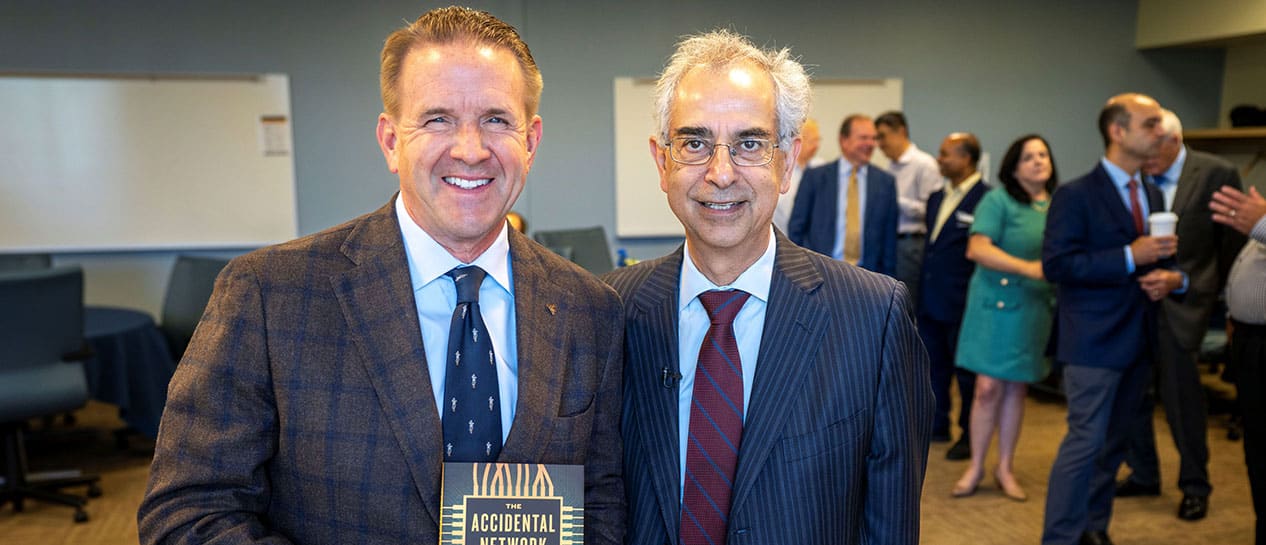If you’re looking to develop as a leader, where can you turn? Business schools major on technical theory, but often fail to address the practical human reality of work. Consultants are hooked on their own business model—your autonomy is not their priority. And books and magazines talk to everyone’s problems, but nobody’s in particular.
For even the most experienced leaders, ongoing professional development is essential. The world around us is constantly changing—which means that leaders are constantly confronted with unfamiliar situations to address. Employee expectations are evolving fast, in line with generational wants and needs, and technological and social trends. And, more fundamentally, the journey of leadership is an endless one—involving, at the highest level, mastery of the self.
It’s not only general leadership excellence that is in demand—certain core specialisms are now becoming essential. The ability to manage transformation is one obvious example. According to Jo Dalton of JD&Co, a U.K.-based search and selection specialist, demand for change management competencies is through the roof. “In sectors like travel tech and event tech, they’re saying, ‘We need to completely transform our business model, we need to do something differently to what we’re doing at the moment, and we don’t have the right senior team in place.’” Like never before, leaders need to be able to create, lead and manage transformation.
There are endless opportunities for leadership development available, ranging from webinars to exec coaching to business school courses. So, how do you know if the help on offer is what you need? Here are four questions you should ask before investing your hard-earned time and money.
Question 1. Is it practical in application?
A lot of leadership development centers on theory that might be interesting in the abstract but lacks a real-world application—or, more likely, can be applied in the real world only with considerable effort.
Effective leadership development offers tools and techniques that have a direct, immediate and real-world application. You should, almost from the point of initial contact, be able to identify how the tools on offer can benefit your organization.
A useful question to uncover the level of practicality on offer is: “what other organizations has this [tool/technique] helped, and what results did they achieve with it?” You will want to check that the organizations in question bear more than a passing resemblance to your own in terms of needs, lifecycle stage and culture—the fact that an approach helped a small business, say, will be mostly irrelevant if you are a large corporate. If the answer is vague or unconvincing, back away.
Question 2. Does it offer some personalized elements?
Many development experiences are cookie-cutter at worst and rather impersonal at best. You can go to a training course where there might be 50 or 100 other people, or log on to a webinar with a cast of hundreds or even thousands (remember MOOCs?). You might learn something, but you won’t get much personal attention.
At a senior level this matters, for two reasons. The first is that the nature of the challenges that many leaders experience can require sensitive exploration with your chosen sources of support as part of the development process. A one-size-fits-all approach creates the risk of you not getting the value you were seeking.
The second is that strategy has an uncomfortable habit of dying on contact with reality. Any good leadership development experience will allow leaders the capacity to probe for themselves how to avoid this happening, with specialist support on offer throughout the journey.
Question 3. Does it blend technical and human skills?
In a world of seemingly endless change, it is vital for leaders to develop the competencies to be able to create, lead and manage organizational transformation effectively.
Getting change done can be wickedly hard, with even objectively brilliant plans being no match for the human reality of work. As I often say to clients, “It’s not robots that are killing your progress to automation.” Similarly, a lack of ideas is not destroying your ability to innovate. And if your operation is failing to evolve, it’s not just the fault of your operating model.
Success or failure is almost always a matter of people—and how engaged and equipped they are for change.
Managed badly, people become an insurmountable barrier to change. But managed well, they are the fastest and most effective route to it. Any leadership development experience will therefore teach human skills alongside technical ones. If only of these types of skills is on offer, it is worth questioning whether the development experience is as valuable as it might be.
Question 4. Is it taught by practitioners?
“Those who can’t, teach” runs the old saying. Unlike other aphorisms, this one is only partly true. The world is full of good teachers—many of whom have a deep understanding of their domain borne of years of research and academic experience.
But, in terms of leadership development, even the strongest academic skillset is simply no match for the hard-worn experience of those who have been there and done it for themselves. Commercial enterprises can be uniquely difficult—even borderline idiosyncratic—in their thinking and actions. And the experience of working with imperfect people in tough commercial contexts and often questionable organizational cultures cannot be replicated in any classroom.
For leaders looking to create real-world change, practitioner-led development has the edge. It is here, at the intersection of education and experience, where real impact is made.
Written by: Phil Lewis from Forbes



